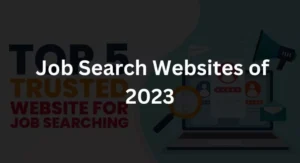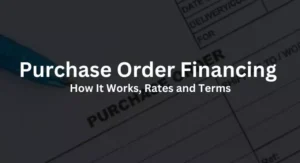
More funding for sustainability reporting: Worldfavor, a pioneering platform based in Sweden that focuses on developing digital infrastructure to support supply chain transparency and meet organisations’ ESG (environmental, social, and governance) reporting needs, has secured €10.2 million in Series A funding to kickstart the growth gas.
The Nordic corporate bank SEB’s SEB Private Equity, along with current investors Brightly Ventures and Spintop Ventures, led the Series A. With the increase, Worldfavor has now raised a total of €13.4 million.
Many supply chain transparency and sustainability reporting startups have emerged over the past five years as consumer pressure on ethical and environmental issues, as well as frustration with “greenwashing,” has grown. This pressure has been coupled with increased attention and stringent reporting requirements from policymakers, such as via EU regulations linked to the European green deal, whereby the region is aiming to be “climate-neutral” by 2050.
Andreas Liljendahl, co-founder and CEO of Worldfavor, says he welcomes the growing number of stakeholders in sustainability reporting and anticipates a future of rich collaboration and startup opportunities to meet these standards.
“We are ecstatic that more and more gamers are showing up. There is still potential for a wide variety of companies since there is a significant issue and a wide range of requirements in this market, he tells TechCrunch. “There are various demands in various areas, etc.
“Over time, I believe we will witness an ecosystem where the ecosystem’s actors interact more than they do at the moment.”
For the time being, Worldfavor’s approach appears to be more of a platform play than some of the more specialised reporting/transparency tools that are emerging to serve certain goods or sectors. He affirms, adding: “We have multiple stakeholders — the buyers, the investors, the big corporations. We strongly believe in [being a] cross-industry [tool] — to make it easy for one single company to share their information to multiple actors, lowering their reporting fatigue that they have currently.
“It’s kind of a network problem because businesses are more interconnected than ever and we don’t know as much about businesses to firms so… He elaborates on why a platform approach makes sense for cross-cutting ESG reporting across complex global supply chains, saying that if you are an importer of, say, wine and you need to understand the emissions of the products you’re selling, you cannot understand that yourself — you need to ask your producer and the producer needs to understand the farms in different tiers.
The firm, which was formed in 2016, claims that over 25,000 organisations in over 130 countries utilise its network to access and exchange information to support decision-making linked to ESG goals, such as in relation to reducing CO2 emissions or in response to human rights issues.
According to Liljendahl, customers can be divided into three groups: procurement organisations with a focus on supply chain sustainability; investors and private equity firms who need to conduct sustainability due diligence on their portfolio and/or potential investments; and larger companies that require reporting to encompass their own subsidiaries so they can also understand the ESG trajectory of the entire group.
More than five years after launching, the mission appears to be simpler as network effects begin to take effect and work to increase and deepen participation. Getting Worldfavor’s network off the ground in the first place required getting enough provider data flowing into it to create the kind of utility that can build momentum.
Demand is anticipated to increase as authorities pay more attention to sustainability in the coming years.
Worldfavor’s founding team: left to right: Pär Gustafsson (CTO), Andreas Liljendahl (CEO), Frida Emilsson (COO) and Lars Peter Eriksson (VP Product).
According to Liljendahl, the team overcame the “chicken and egg” startup dilemma by concentrating on gaining the support of bigger organisations and utilising their influence over their own supply chains to get segments of suppliers to join up and begin submitting data.
However, he believes that there are increasing incentives for providers to sign up since doing so would make them more visible to the network of data accessors at Worldfavor who are searching for suppliers they can measure. In other words, the reporting platform’s ability to access data already might provide it a competitive edge. “The providers understand where they are now and may be able to more readily know how they could better their own operations,” he says. “They appreciate the benefit of giving information to one or many stakeholders on the platform—understand where they can.
It’s crucial to keep in mind that the data providers on the Worldfavor platform self-report their data, so the company isn’t actively auditing any of these ESG-related claims. Instead, it aims to increase transparency (and access to data), which will bring some “disinfecting sunlight” and support higher standards of accountability. (However, the latter’s delivery is probably a brand-new startup opportunity for teams focusing on data-verification/auditing innovation, positioning them to collaborate with platforms like Worldfavor.)
According to Liljendahl, “the first fundamental necessity is to create an infrastructure to enable information to flow more readily.” Then, “we make sure the information is shared with extreme transparency, so you can also track back,” including with whom, when, and other details.
According to him, the team has certain tools on top that perform some analyses and comparisons in order to provide some fundamental checks on reports. In order to catch inaccurate reporting, it is attempting to build more complex tools and even some sort of automatic auditing. To do this, machine learning technology would be used to recognize claims that are unusual or changes to reporting history.
Incentives to cut corners (or worse) and pump out “ESG hot air” may well linger like a bad smell, despite increased transparency across industries and sectors which should, hopefully, work against bad actors by making it harder to get away with faking key types of sustainability data. Emissions reporting requirements have already led to some major scandals.
Self-reporting (as opposed to active auditing) is undoubtedly the most scalable approach to this because for the time being, Worldfavor’s priority is still on increasing usage in order to aim for genuine size. The ability for information to be self-audited in the future “may be a fantasy, but only if we raise the transparency between organizations,” the speaker claims, adding that “our main purpose is to establish the transparency today that’s lacking — entirely missing.”
According to Liljendahl, the goal of the Series A funding is expansion for the platform’s data suppliers, data accessors, and daily data transaction volume. Of course, they also want to increase ARR with the usual goal of expanding the firm and placing it on a stable financial foundation. We have tremendous goals, he continues. “Our yearly recurring income is rising at a little over 100%, and our user base is expanding at a little over double that rate. And we are super happy with that.
In a statement on the funding, Babak Etemad, investment director at SEB Private Equity, added: “We’re thrilled to join the amazing team at Worldfavor in their drive of raising the standard on sustainability and helping organisations communicate vital sustainability-related information. In the upcoming ten years, we are certain that Worldfavor will be a key player in this sector, and we are eager to help them along the way.







